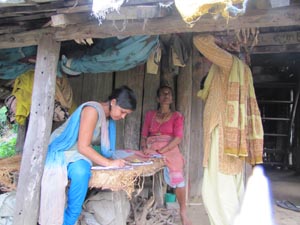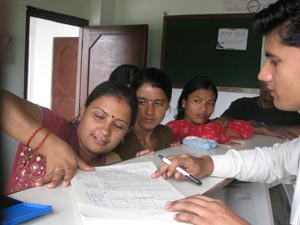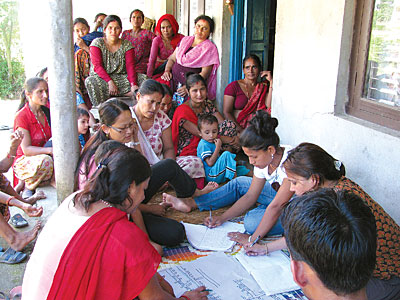 |
In Dadeldhura, I met Shakuntala Nagarkoti, a 35-year-old leader of a women's group that works for community improvement. Shakuntala is outspoken, owns her own photocopy business, and thinks men waste too much time and money on alcohol.
Shankuntala and her group of 15 took action. First, they convinced women in the village to ban the sale of raksi during the day. Then they trained them in management to enable women to invest savings from raksi not consumed to other small businesses.
 |
In Chitwan, I met 23-year-old Sita Basnet Karki of the Tarauli Community Library. Sita and her friend, Sushma Kunwar (see pic), were participants in a need assessment survey for future projects by READ Nepal. The survey results as well as the group discussion revealed how women had gained confidence and started being involved in their communities.
Respondents said they have become more independent, gained more control over household finances and are becoming better at making decisions. They are increasingly involved in local cooperatives where they have their own savings. Most signed up to participate in community libraries because they believe in the importance of literacy. During a 12-day community librarian training in Banepa in early July, women made up 18 of 28 participants. "I want to serve women and children, only women can understand the comfort of working with other women," said Dhanumaya Pahadi Poudel, a 26-year-old librarian at Dipshikha Community Library in Kaski.
 |
But women like Shakuntala, Sita and Sushma have independently begun their movement towards liberation, from housewives to active members of their communities. Their courage and determination changed my perception of women in South Asia.
Jeerawat Na Thalang is a correspondent with The Nation newspaper in Bangkok and spent two months with READ Nepal.
READ ALSO:
The gift of sight, RUBEENA MAHATO
"How can I ever forget?"
As good as new


